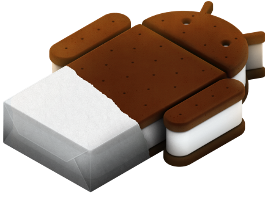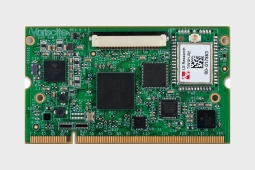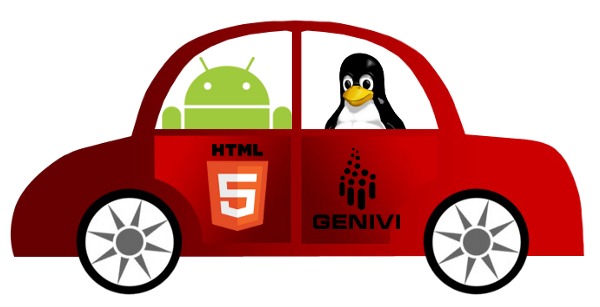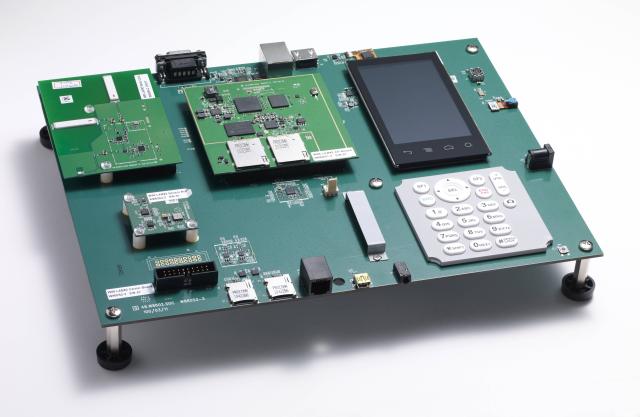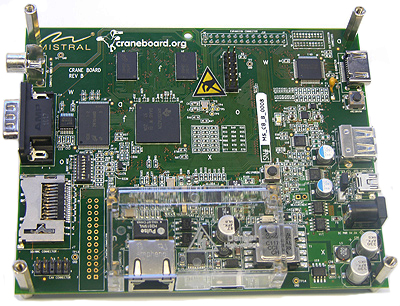The first Android Open Conference took place about 10 days ago. Karim Yaghmour of OperSys published the presentation slides he used during his Android presentations. See Embedded Android Workshop presentation slides below. Those 159 slides cover the following: Android Basics Android History Android Ecosystem Legal Framework for Android Platform and Hardware requirements Development Tools Concepts and Internals: Android Concepts Framework Intro Native Development Overall Architecture System startup Linux Kernel Hardware Support Native User-Space Dalvik JNI System Server Calling on Services Activity Manager Binder Stock AOSP Apps Android Open Source Projects Tools and location Content Building Build system Adding new applications Images Using adb System Server Services run by System Server Observing the System Server Calling on system services Inside a few system services Creating your own system service Hardware Abstraction Layer Android Framework Location and components Android Customization Custom Toolchains and Dev Kits Rationale SDK generation NDK generation Creating a […]
Android 4.0 SDK and Platform Highlights
Google has just released Android 4.0 (ICS) preview SDK and platform highlights. Android 4.0 Highlights Summary New User Features: Refined, evolved UI – Common action more visible, new typeface, improved multitaksing and notifications. Home screen folders and favorites tray – New home screen folders offer a new way for users to group their apps and shortcuts logically. Resizable widgets – Interactive widgets are resizable, so users can expand them to show more content or shrink them to save space New lock screen actions – The lock screens now let users do more without unlocking such as accessing the camera app. Quick responses for incoming calls – Respond by pre-written SMS if you are busy during a call Swipe to dismiss notifications, tasks, and browser tabs Improved text input and spell-checking – The softkeyboard now comes with a spell-checker and can automatically correct typos. Powerful voice input engine – Talk to […]
Variscite System On Module based on TI OMAP4460
Variscite – an Israeli company specialized in embedded systems manufacturing, development and consulting – announced the VAR-SOM-OM44 system on module (SOM) based on TI OMAP4460 processor (dual core Cortex-A9 cores @ 1.2 ~ 1.5GHz). This SOM features 512MB of DDR2 SDRAM and a microSD socket, I/O including gigabit Ethernet, USB 2.0, 3D camera, and HDMI. Variscite also announced the VAR-OM44CustomBoard, a development board that can be customized to match specific customers requirement as well as the VAR-DVK-OM44, a complete development kit with touchscreen for evaluation and application development purposes. Here are the VAR-SOM-OM44 SOM specifications: CPU: Texas Instruments OMAP4460 Processor (1.2GHz – 1.5GHz) dual-core ARM Cortex-A9 MPCore GPU: PowerVR™ SGX540 graphics core @384MHz Memory: 512-1024MB 400MHz LPDDR2 Built-In micro-SD Socket Display: LCD interface – Supporting 24bpp resolutions up to WXGA HDMI interface – Supporting 1080p 4-wire touch screen panel interface Audio: Line-in Stereo Headphone out Digital microphone S/PDIF Out Network: 10/100/1000Mbps […]
New Android 2.3.4 Release For ST Ericsson Snowball Development Board
Igloo Community – the team developing for ST Ericsson Snowball Nova A9500 development board – has released the second version of Android 2.3.4 for the board. It can be downloaded at http://igloocommunity.org/download/android/images/20111012/ for V3 and V5 boards. Here are the new features and main bug fixes for this release: GPS support enabled WiFi instabilities fixed and enabled in the UI The browser home page crash is gone and the known issues: Audio recording does not work Potrait mode does not work (rotating the device corrupts screen until rotated back) The phone app crashes (no modem support) The flashing instructions are available at http://www.igloocommunity.org/support/Flashing_howto Jean-Luc Aufranc (CNXSoft)Jean-Luc started CNX Software in 2010 as a part-time endeavor, before quitting his job as a software engineering manager, and starting to write daily news, and reviews full time later in 2011. www.cnx-software.com
MontaVista adds HTML5 and Android support to its GENIVI-Compliant Automotive Technology Platform
Montavista announced secure HTML5 and Android support to its Automotive Technology Platform (ATP) which is GENIVI Compliant. HTML5 support is provided via MontaVista’s ModiiTM Digital Media Solutions Platform. Both Android and HTML5 are made independant of critical part of the software as they are executed in a MontaVista Linux Container (isolated virtualized container environment). Here’s an excerpt of the press release: SANTA CLARA, Calif. – October 10th, 2011 – MontaVista® Software LLC, today announced secure HTML5 and Android support for its Automotive Technology Platform (ATP). The addition of HTML5 support is provided via MontaVista’s ModiiTM Digital Media Solutions Platform which adds a powerful HTML5-based UI Framework to its recently released GENIVI-Compliant Platform. The Android support delivers a high performance Android runtime environment, which opens up access to a vast number of popular applications from the entire Android ecosystem. Complementing the Android and HTML5 capabilities, MontaVista has implemented a unique dual-layered […]
Tizen: Linux Based OS with HTML5 Application Programming Interfaces
Earlier this week, the Linux Foundation announced yet another new Linux-based open source operating system for mobile and consumer devices based on Web standards called Tizen. This project is backed by Intel and Samsung who have already been involved with Linux based operating systems before, respectively with MeeGo and Bada. Both companies will be part of the technical steering team. It looks like Tizen will replace Meego overtime. Meego developers blasted the move and posted angry comments especially in relation to Qt support and the fact that all the previous work put into the project has probably gone to waste. My take is that using HTML5 is probably not such a bad ideas as many applications are currently developed in HTML5/Javascript for Chrome Webstore for example, and it could make porting those to Tizen straightforward. Tizen will support multiple device categories including: Smartphones Tablets Smart TVs Netbooks In-vehicle infotainment devices […]
Qualcomm APQ8060 Android Development Board BSQUARE DragonBoard
BSQUARE announced the DragonBoard a development board built around Qualcomm APQ8060 mainly targeted at Android 2.3 development. Here’s an excerpt of the press release: BSQUARE Corporation, a leading enabler of smart, connected devices, today announced general availability of DragonBoard™, an Android™ development platform based on Qualcomm Incorporated’s Snapdragon™ APQ8060 processor. DragonBoard provides device makers, application developers and other hardware and software ecosystem suppliers with early access to the APQ8060 processor in a flexible development environment. DragonBoard is a powerful, feature-rich development board that offers exposed connectors, adapters and expansion headers including JTAG, Ethernet and mini USB. These features provide deep levels of development, testing and expansion that allow OEMs to do early prototyping of APQ8060 based systems, component suppliers to integrate devices with the APQ8060 processor and Android application developers to create innovative applications for the growing open source development community. When combined with BSQUARE products and services, DragonBoard enables […]
CraneBoard: Low Cost Development Board based on TI AM3517
The CraneBoard is a low-cost, open-source hardware development platform based on the AM3517 Sitara ARM Cortex-A8 microprocessor. The CraneBoard was announced in December 2010, can be purchased for 199 USD and can be an alternative to the Beagleboard-xM. AM3517 is especially suited to industrial applications and would be a preferable platform if your project needs CAN or PoE support. The board has less RAM (256 MB vs. 512MB) and no camera port. Here are the features and specifications of the board (I highlighted the differences with Beagleboard-xM in green): AM3517 Sitara ARM Cortex-A8 – 600MHz Integrated 3D Graphics Accelerator RAM: 256 MB NAND Flash: 256MB Support for on-chip peripherals: 10/100 EMAC USB OTG utilizing on-processor PHY 3.3V I/O CAN Bus DDR2 Power over Ethernet and other power options including USB and DC MMC/SD Card Support Fully open-source four-layer PCB Fully Open Source Linux Board Support package (2.6.32) Based on existing […]



